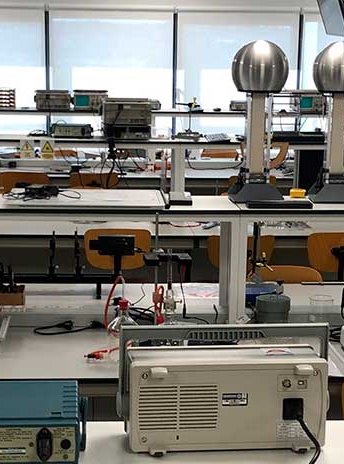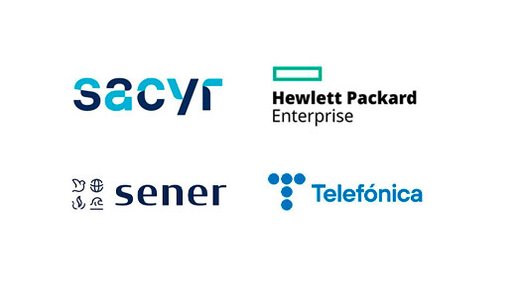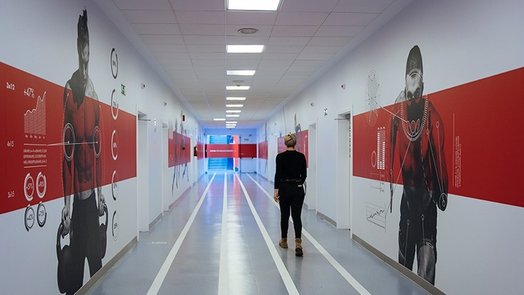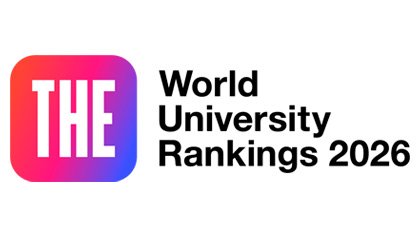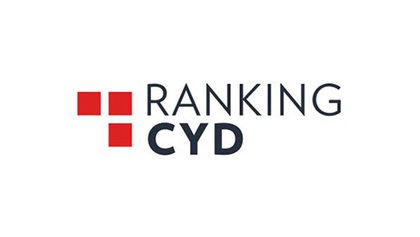Degree in Physics
The Degree in Physics is a 4-year programme designed to equip you with the skills and knowledge to understand and analyse how the world works, from the smallest structures to the largest. The academic model at Universidad Europea is based on experiential learning, so you will be able to apply the reasoning and physics theory you learn to real projects and practice.
Our Bsc in physics is a broad programme that will allow you to further specialise when you graduate, either by entering the workforce or continuing your studies with masters programme. Subjects include: Quantum Technology, Nanotechnology, and Electronics.
Official degree issued by Universidad Europea de Madrid
| Campus-based | Villaviciosa de Odón | 4 Years, 240 ECTS | Start: 14 sep. 2026 | School of Architecture, Engineering, Science and Computing - STEAM |
Curriculum
Study plan
PRIMER CURSO
| Materia | ECTS | Tipo | Idioma de impartición |
|---|---|---|---|
| Fundamentals of Physics I | 6 | Core | Spanish (es); English (en) |
| Fundamentals of Physics II | 6 | Core | Spanish (es); English (en) |
| Core Experimental Techniques | 6 | Core | Spanish (es); English (en) |
| Mathematical Analysis I | 6 | Core | Spanish (es); English (en) |
| Mathematical Analysis II | 6 | Core | Spanish (es); English (en) |
| Linear Algebra and Analytical Geometry | 6 | Core | Spanish (es); English (en) |
| Complex variables | 6 | Compulsory | Spanish (es); English (en) |
| Scientific Computing I | 6 | Core | Spanish (es); English (en) |
| Scientific Computing II | 6 | Compulsory | Spanish (es); English (en) |
| Chemistry | 6 | Compulsory | Spanish (es); English (en) |
SEGUNDO CURSO
| Materia | ECTS | Tipo | Idioma de impartición |
|---|---|---|---|
| Mechanics and Waves I | 6 | Compulsory | Spanish (es); English (en) |
| Mechanics and Waves II | 6 | Compulsory | Spanish (es); English (en) |
| Electromagnetism I | 6 | Core | Spanish (es); English (en) |
| Electromagnetism II | 6 | Compulsory | Spanish (es); English (en) |
| Optics | 6 | Compulsory | Spanish (es); English (en) |
| Thermodynamics | 6 | Compulsory | Spanish (es); English (en) |
| English | 6 | Core | Spanish (es); English (en) |
| Pilot Project I | 6 | Compulsory | Spanish (es); English (en) |
| Differential Equations in Physics | 6 | Compulsory | Spanish (es); English (en) |
| Statistics and Scientific Data Analysis | 6 | Compulsory | Spanish (es); English (en) |
TERCER CURSO
| Materia | ECTS | Tipo | Idioma de impartición |
|---|---|---|---|
| Quantum Physics I | 6 | Compulsory | Spanish (es); English (en) |
| Physical Electronics | 6 | Compulsory | Spanish (es); English (en) |
| Solid-State Physics | 6 | Compulsory | Spanish (es); English (en) |
| Statistical Physics | 6 | Compulsory | Spanish (es); English (en) |
| Experimental Project I | 6 | Compulsory | Spanish (es); English (en) |
| Materials Physics | 6 | Optional | Spanish (es); English (en) |
| Characterisation Techniques | 6 | Optional | Spanish (es); English (en) |
| Advanced Materials Physics | 6 | Optional | Spanish (es); English (en) |
| Introduction to Nanotechnology | 6 | Optional | Spanish (es); English (en) |
| Signal and Image Processing | 6 | Optional | Spanish (es); English (en) |
| Databases | 6 | Optional | Spanish (es); English (en) |
| Data Mining | 6 | Optional | Spanish (es); English (en) |
| Advanced Scientific Computing | 6 | Optional | Spanish (es); English (en) |
| Applications of discrete mathematics | 6 | Optional | Spanish (es); English (en) |
CUARTO CURSO
| Materia | ECTS | Tipo | Idioma de impartición |
|---|---|---|---|
| Quantum Physics II | 6 | Complulsory | Spanish (es); English (en) |
| Nuclear and Particle Physics | 6 | Complulsory | Spanish (es); English (en) |
| Experimental Project III | 6 | Complulsory | Spanish (es); English (en) |
| Final Degree Project | 6 | Complulsory | Spanish (es); English (en) |
| Internships | 6 | Complulsory | Spanish (es); English (en) |
| Materials for Energy Storage and Transformation | 6 | Optional | Spanish (es); English (en) |
| Photonics | 6 | Optional | Spanish (es); English (en) |
| Quantum Technologies | 6 | Optional | Spanish (es); English (en) |
| Internship Extension | 6 | Optional | Spanish (es); English (en) |
| Introduction to relativity and Cosmology | 6 | Optional | Spanish (es); English (en) |
| University Activities | 6 | Optional | Spanish (es); English (en) |
Internships
Internships are a key part of your training. Gaining experience after what you learn in your degree is the best way to enter the job market. There are two types of internships, curricular (included in your syllabus) and extracurricular (which you can do on a voluntary basis).
To do a curricular internship in a company, you’ll need to have passed 50% of the credits and enrol on the course before you start work. These internships are monitored by the company and the internship professor, as well as interim and final reports for evaluation.
If you want to improve your work experience before completing your university studies, you can do an extracurricular internship. You can do them in any year, but remember that internships complement your studies, so the more knowledge you acquire throughout your degree, the more you’ll benefit from the internship experience.
Employability
Career opportunities
Physics graduates are great professionals, they’re highly qualified and in high demand in the world of work. Physics is one of the degrees with the lowest unemployment rate. The training you receive will make you a versatile professional accustomed to analysing and modelling complex situations, equipping you with a great capacity to solve a wide range of problems.
Trends
- Quantum computers
- Big Data and Quantum Computing
- New materials
- Nanomaterials
- Robotics
- Proton therapy and health
- Particle physics
- Meteorology and climate change
Teaching and Research
- Applied scientific innovation
- Dissemination
- Managing and using knowledge
- Teaching in the public and private sector
- R&D&I in technology companies
- Public research centres
Science and Technology Companies
- Robotics, electronics, instrumentation and metrology sector
- IT and telecommunications sector
- Materials manufacturing and innovation
- Acoustics
- Environment
- Production of conventional and renewable energies
- Optics, photonics, microwaves
- Geophysics and seismological surveys
Medical Physics and Health
- Hospital radiophysics Radiation protection and control
- Liberal Professions
- Science and technology start-ups
- Expert analyses of systems with physical technologies
- Audits in systems with physical technologies
Admissions
Start your future at Universidad Europea
You can become a student at Universidad Europea in three easy steps.
1
Admission exams
Start your admission process by calling +34 917407272 or request information and our advisors will contact you.
2
Place reservation
Once you have been admitted, secure your place by paying the reservation fee.
3
Enrollment
Submit the required documents to formalise your enrollment.
Open days
We know that now is an important moment to progress in your professional future. That is why we open our virtual doors to you and invite you to join us. We want you to meet the director of your programme and solve all possible doubts you have. You’ll also discover what makes our students and our online methodology unique.
14 February
Excellence endorsed by the best
What is the Degree in Physics?
The Degree in Physics is designed to meet the current demand for professionals in physics applied to the main productive sectors of the business world. Our specialist pathways, oriented towards electronics, computing and materials physics, cover the specialist areas that we consider to be most in demand today.
What do they teach you in physics?
As you would expect, you’ll be taught all the basic subjects that make up the scientific/technical basis of all physics professions. These will be complemented by other subjects that provide additional knowledge of applied physics, split into three branches of knowledge: Electronics, Materials and Computing and Data Analysis.
Is the Degree in Physics difficult?
If you’re really passionate about physics, you’ll obviously find it less difficult, but it would be a lie to say it’s easy.
What do I need to study the Degree in Physics?
The main thing is to have a passion for physics and a vocation for studying it. All your previous knowledge will help you, of course, and the basics of mathematics and physics are essential, but beyond that the university will provide you with the best resources and the best teachers to make understanding and learning what you’re passionate about and what makes you so curious as easy as possible, even though it’s difficult.
